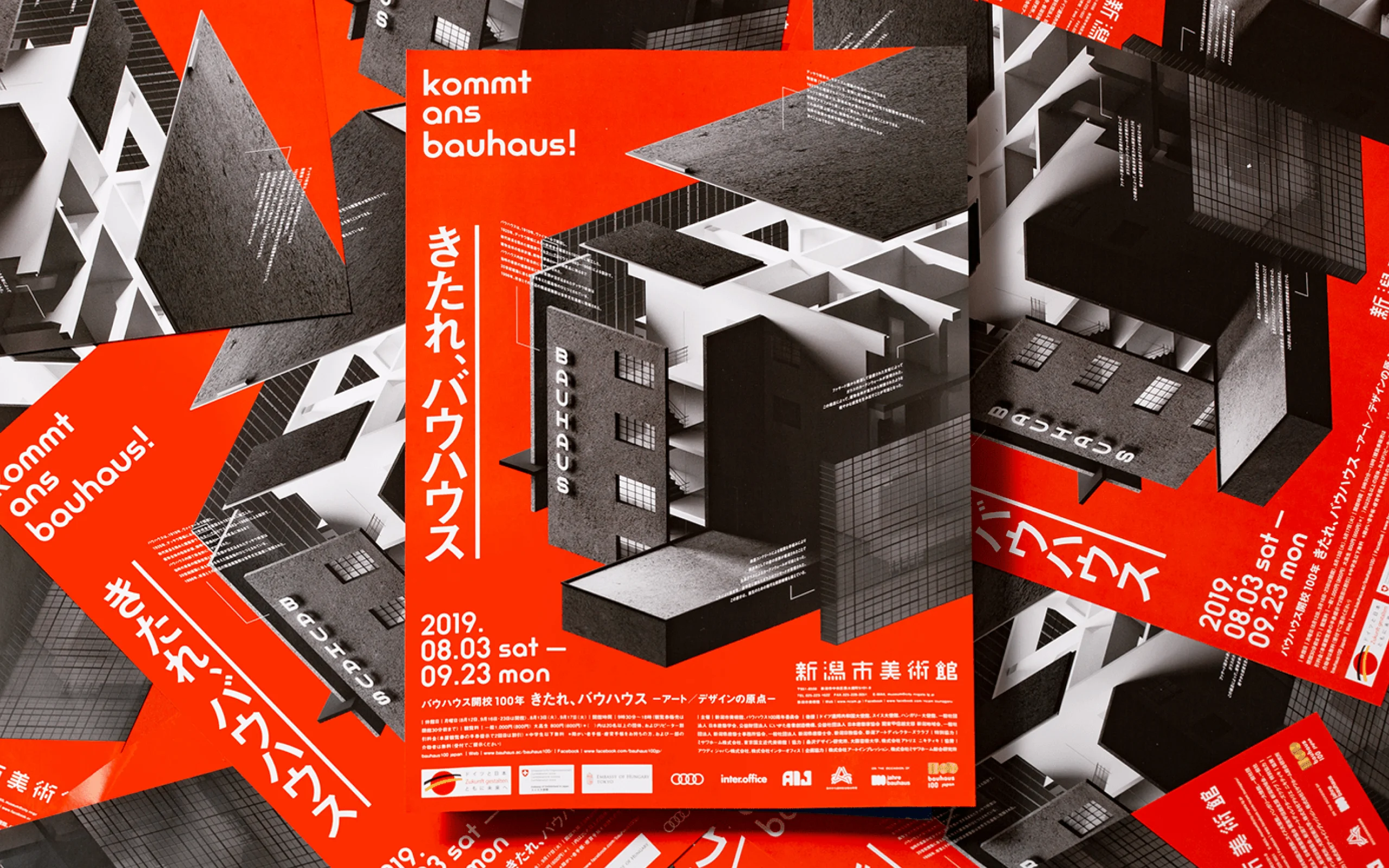
PROJECT
kommt ans bauhaus!
Bauhaus centenary branding for Japan—anatomical approach visualizes design thinking process.
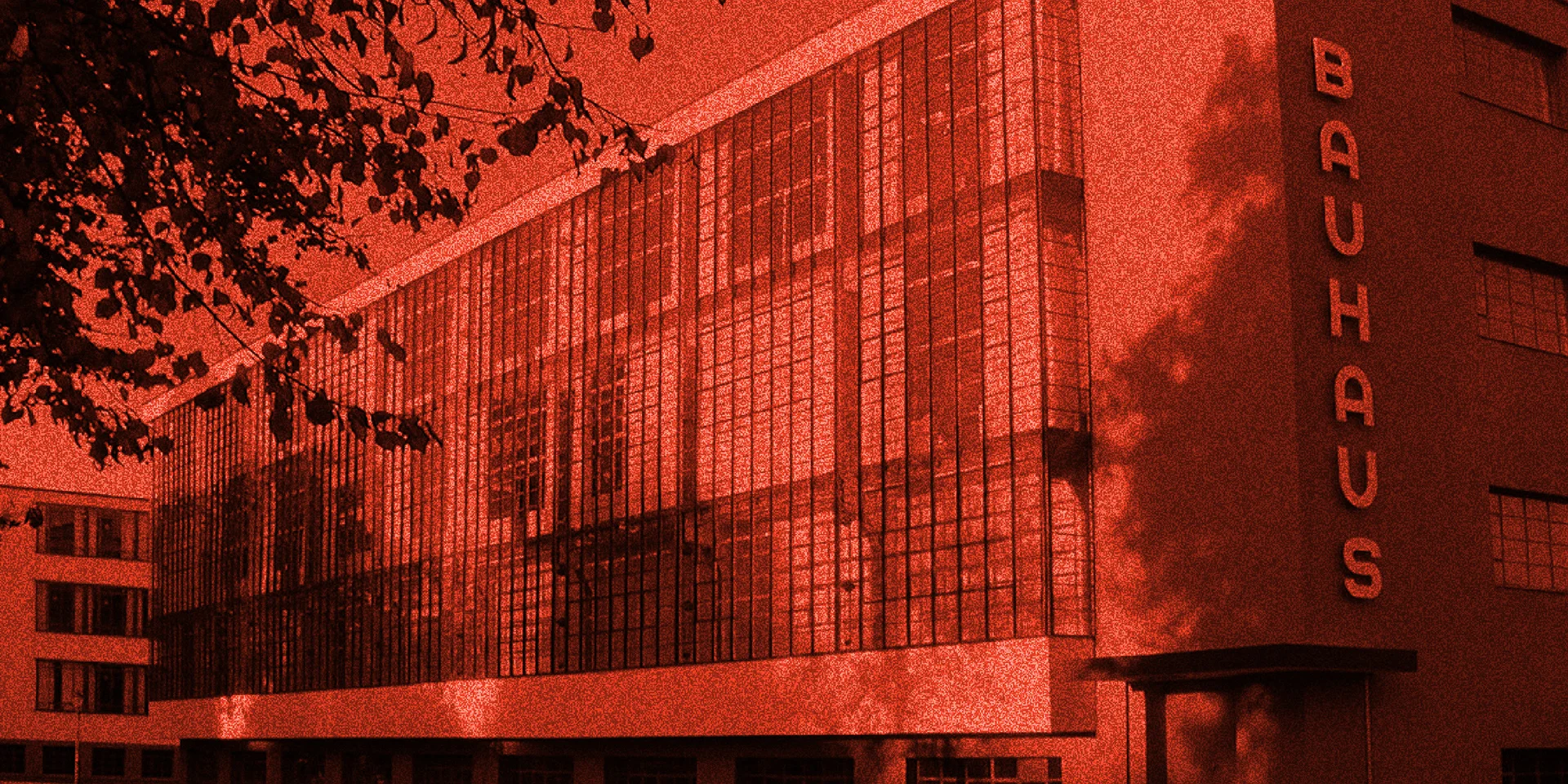
WHY
To relearn creativity
from a 100-year-old
legendary school.
The legendary Bauhaus school of arts opened in 1919 in Weimar, Germany. Founded by architect Walter Gropius and led by noted contemporary artists including Wassily Kandinsky and Paul Klee, Bauhaus was a vital presence in popularizing the concept of “design” as knowledge for enriching consumers’ lives.
While Bauhaus’ history as an active school drew to a close in 1933, just 14 years after opening, during that period it turned out numerous outstanding architects and designers. The school’s educational policy continues to have a great impact in the fields of arts and design. Behind its philosophy lay an innovative creativity education program with its origins in the early childhood education of Friedrich Fröbel. Inspired by the natural philosophy of Johann Wolfgang von Goethe, the school practiced an educational system in which students learned modeling expression in terms of both theory and practice, in the manner of the natural sciences, and linked these to architecture, a field that integrates all of the arts. Could the creativity needed by our modern age be relearned from this philosophy?

HOW
Dissecting the legendary
creativity education
of Bauhaus.

We were placed in charge of overall design for the bauhaus 100 japan project that commemorated the 100th anniversary of the Bauhaus school through exhibits and events held throughout Japan.
In developing the logo for the project, we used a design concept that celebrates the anniversary by modeling the “◯”, “△”, and “□” forms that are commonly depicted as symbols of Bauhaus. We used two cylindrical and one cone-shaped object in a 3D animated logo that presents the shapes “◯”, “△”, “□” when viewed from the top and “100” when viewed from the side.
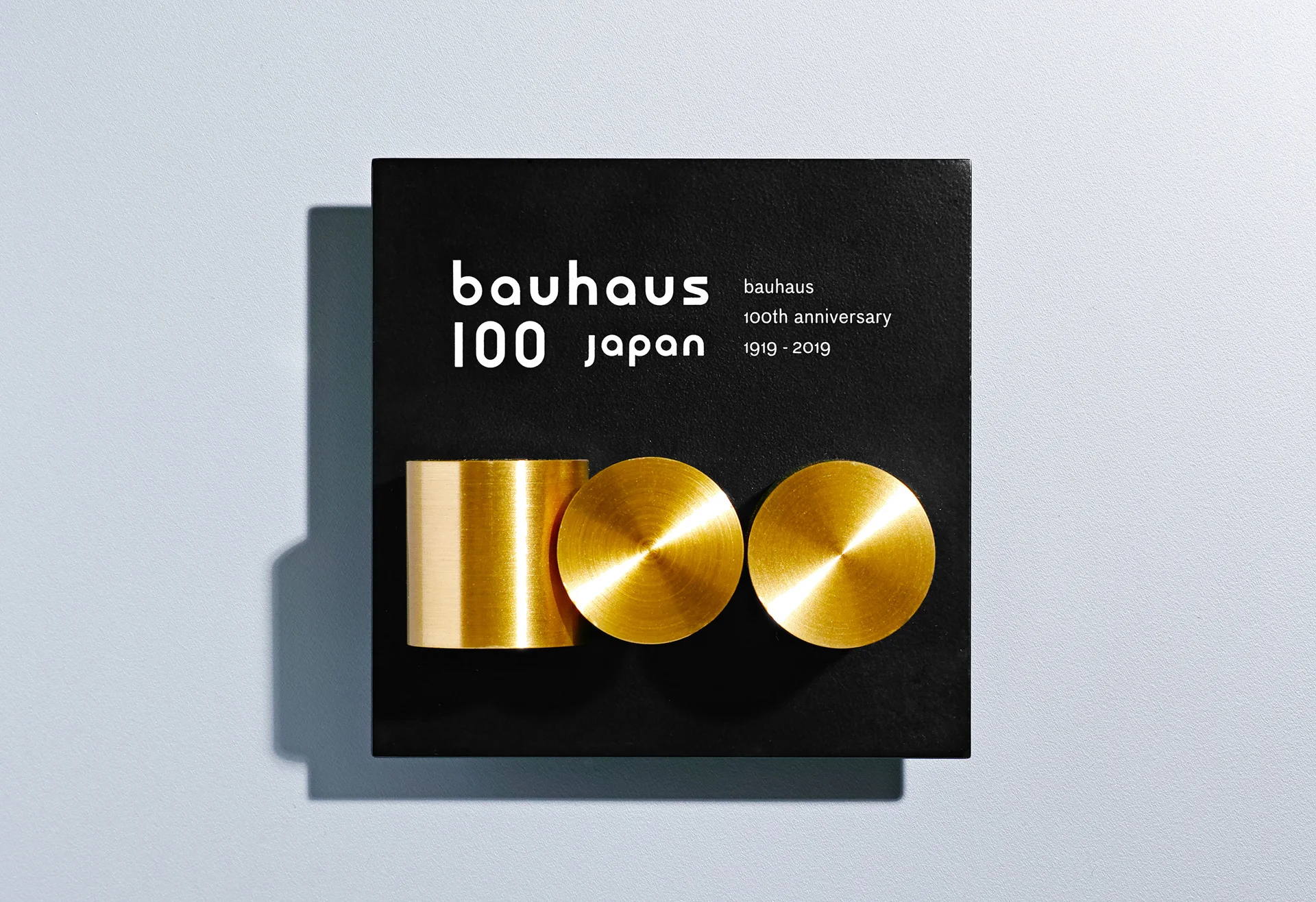
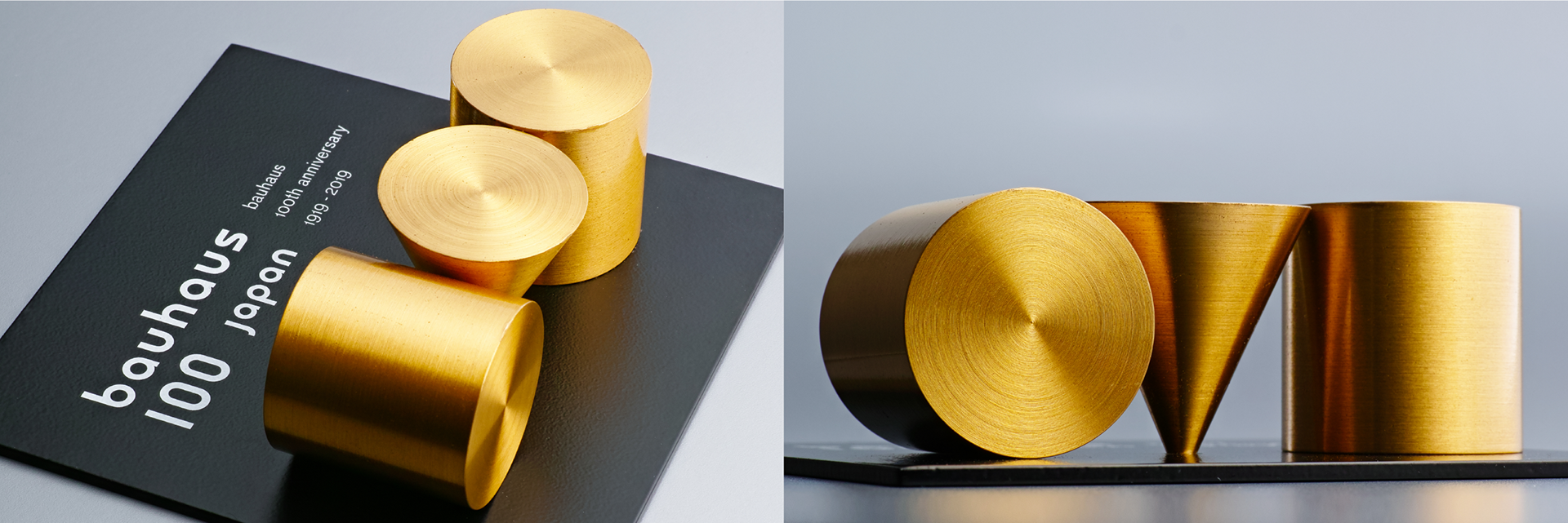
Our art direction for the “kommt ans bauhaus!” exhibit, which spotlighted the fundamental education of Bauhaus, took the theme of dissecting Bauhaus to learn about this storied school anew.
Based on techniques of anatomical physiology that analyze the morphology and structure of the organs making up the human body in terms of their function, we broke down the iconic, Gropius-designed school in Dessau, alongside representative products that came out of the school. We created visuals analyzing the functions of these parts, extending them to exhibit posters, tickets, catalogs, and more. Through this exploration, we sought to understand the meanings hidden in form, aiming for design that triggers creative insights in viewers.
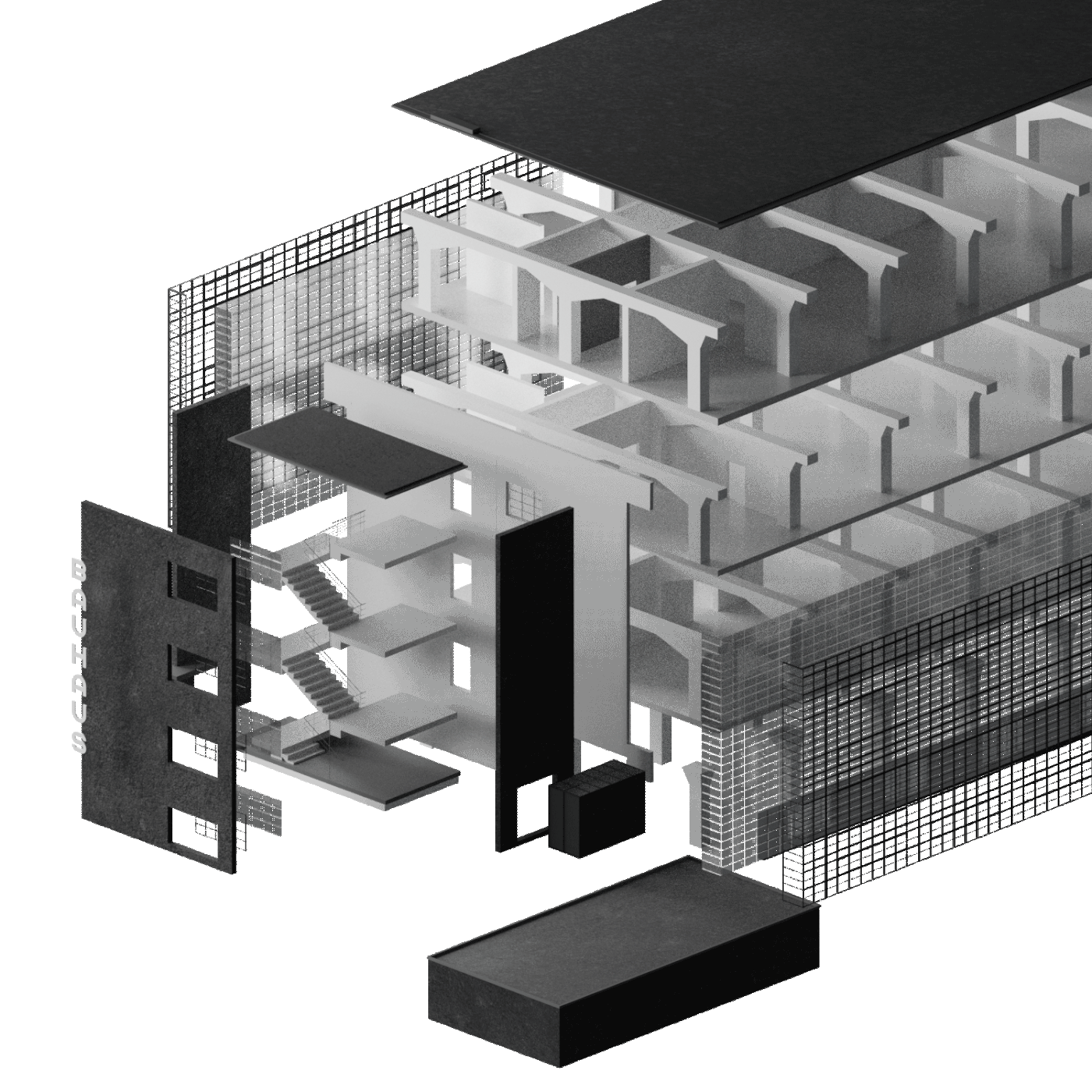
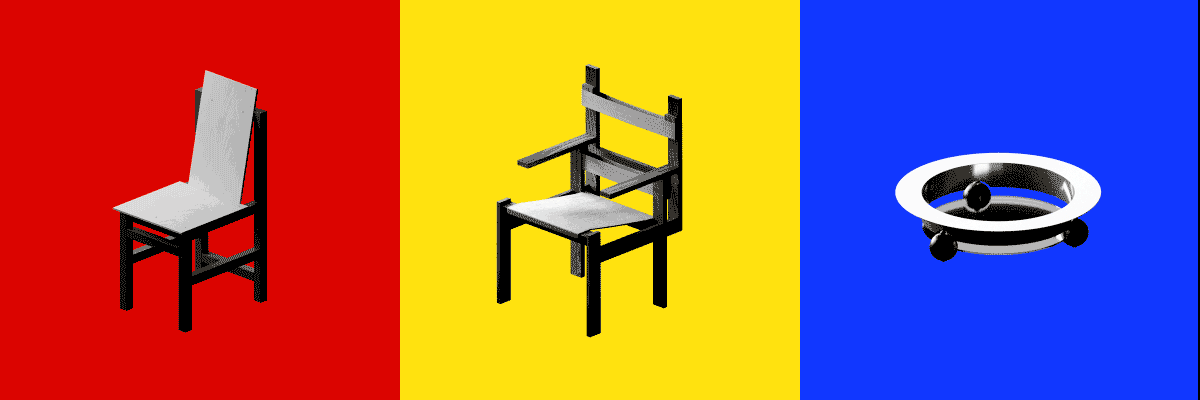
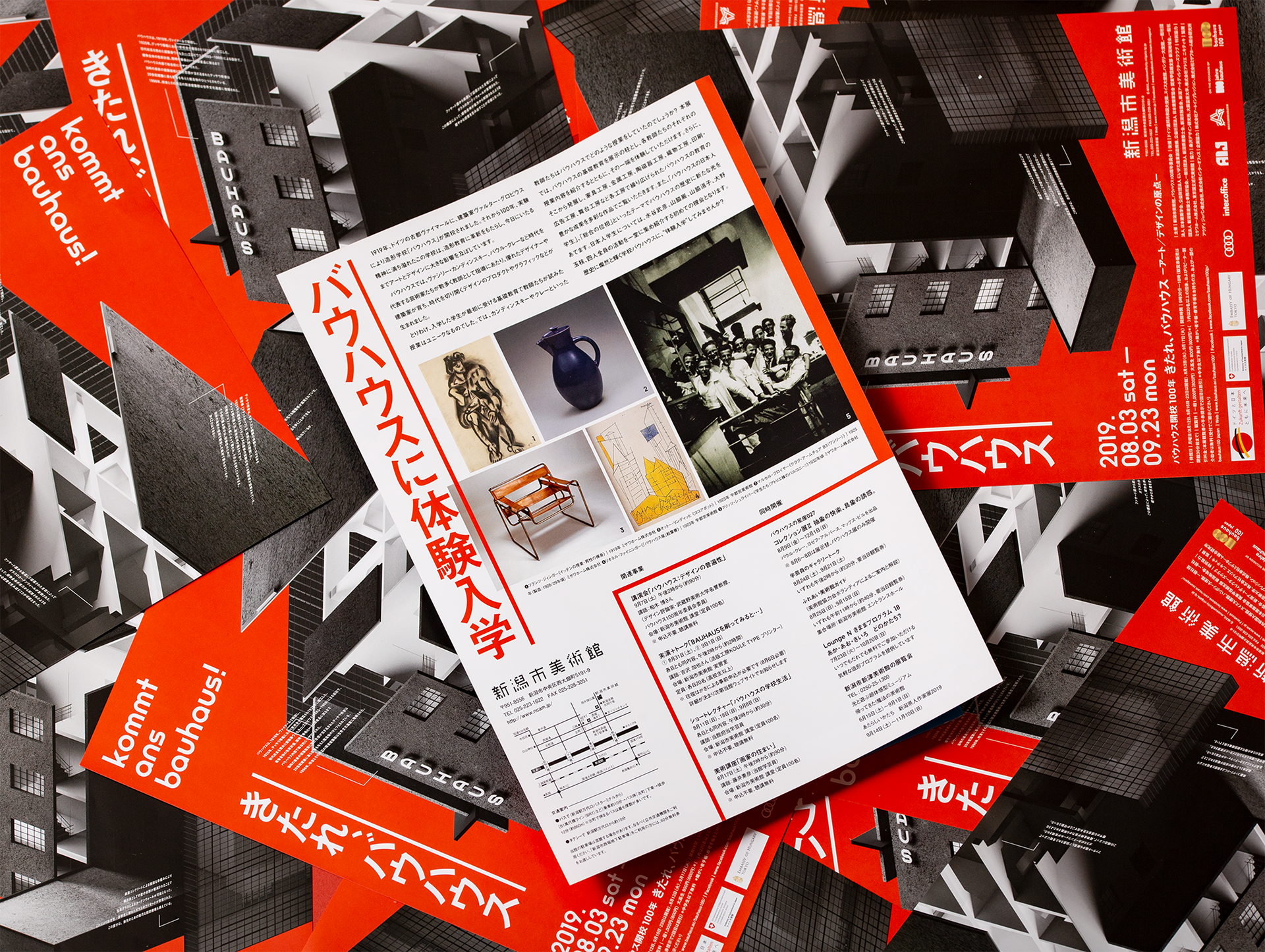
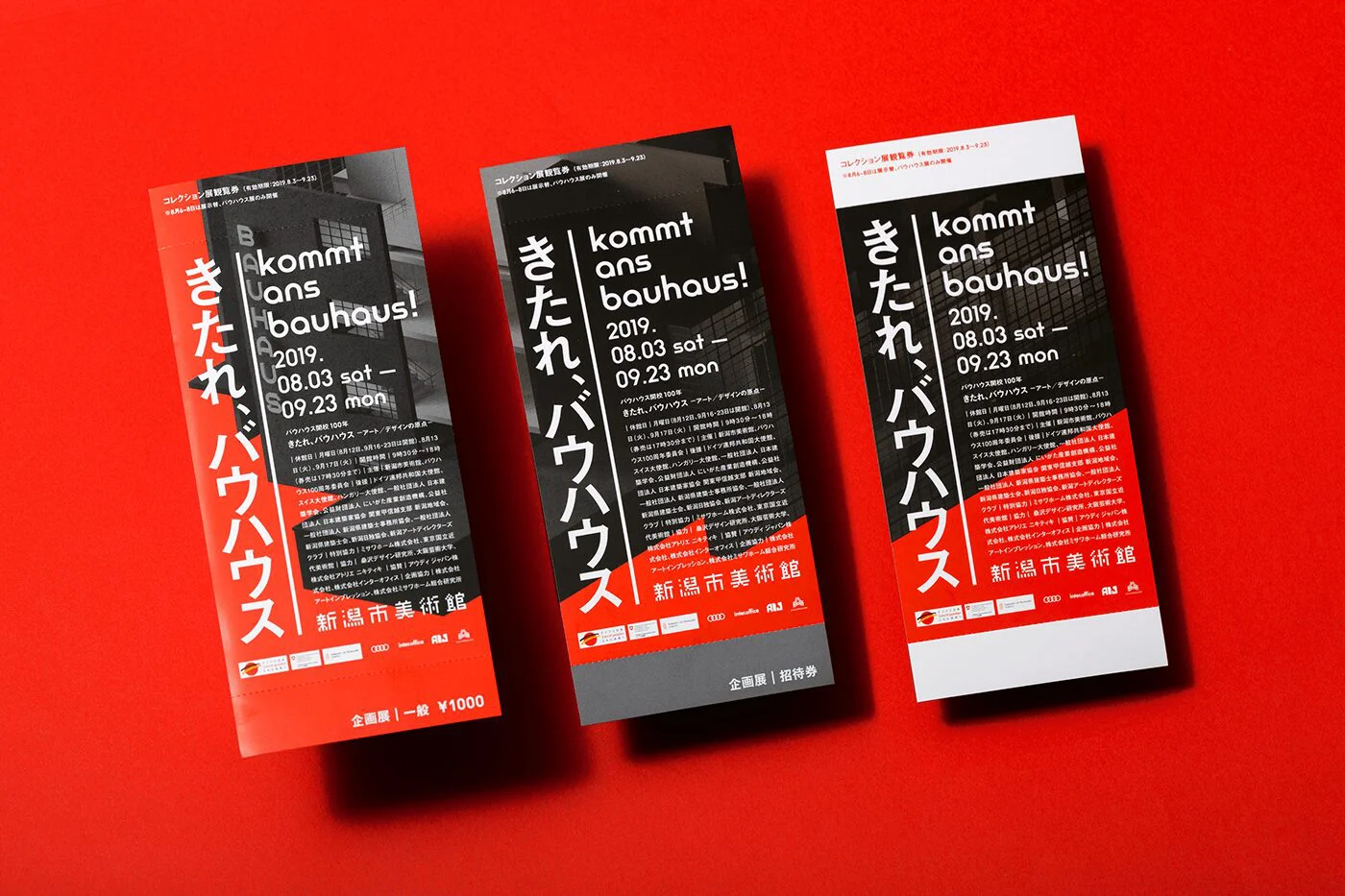
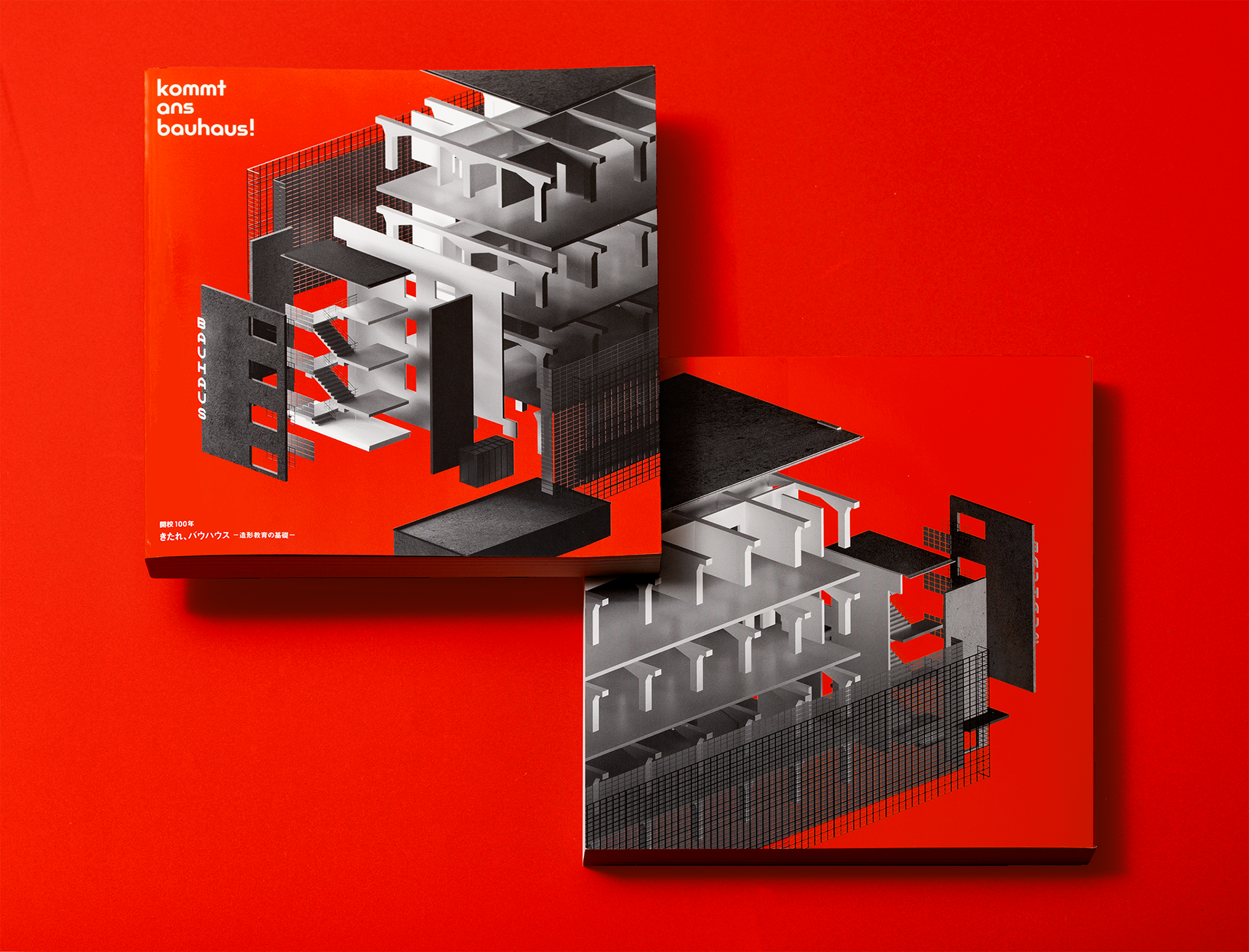
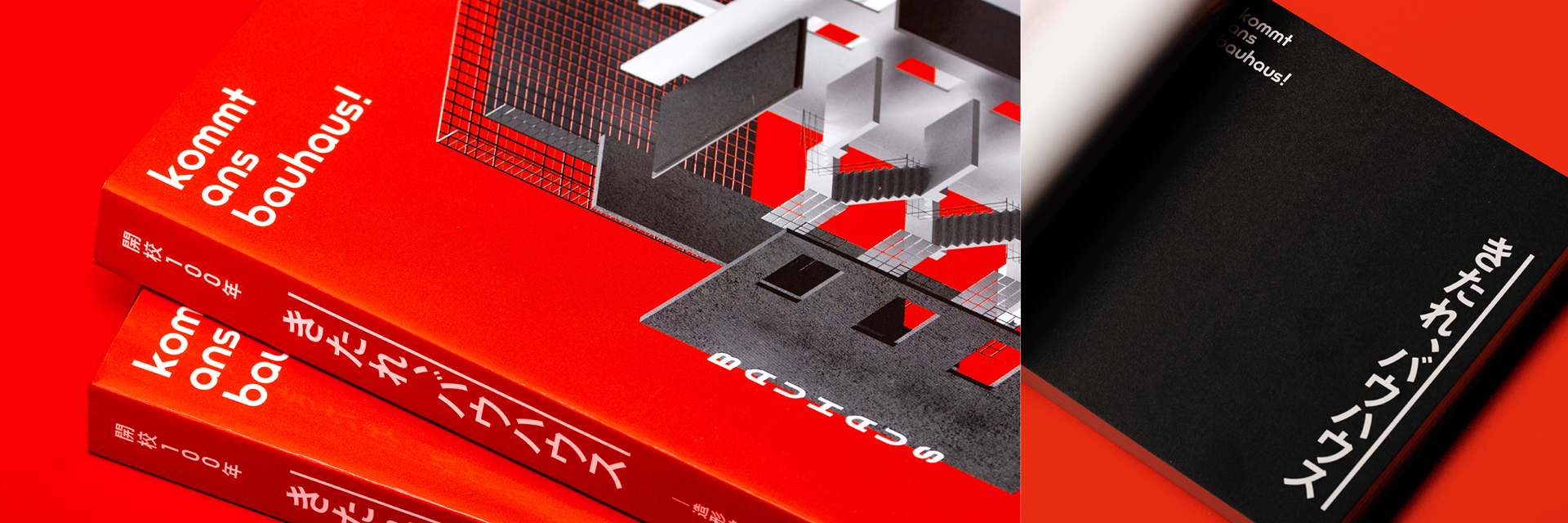
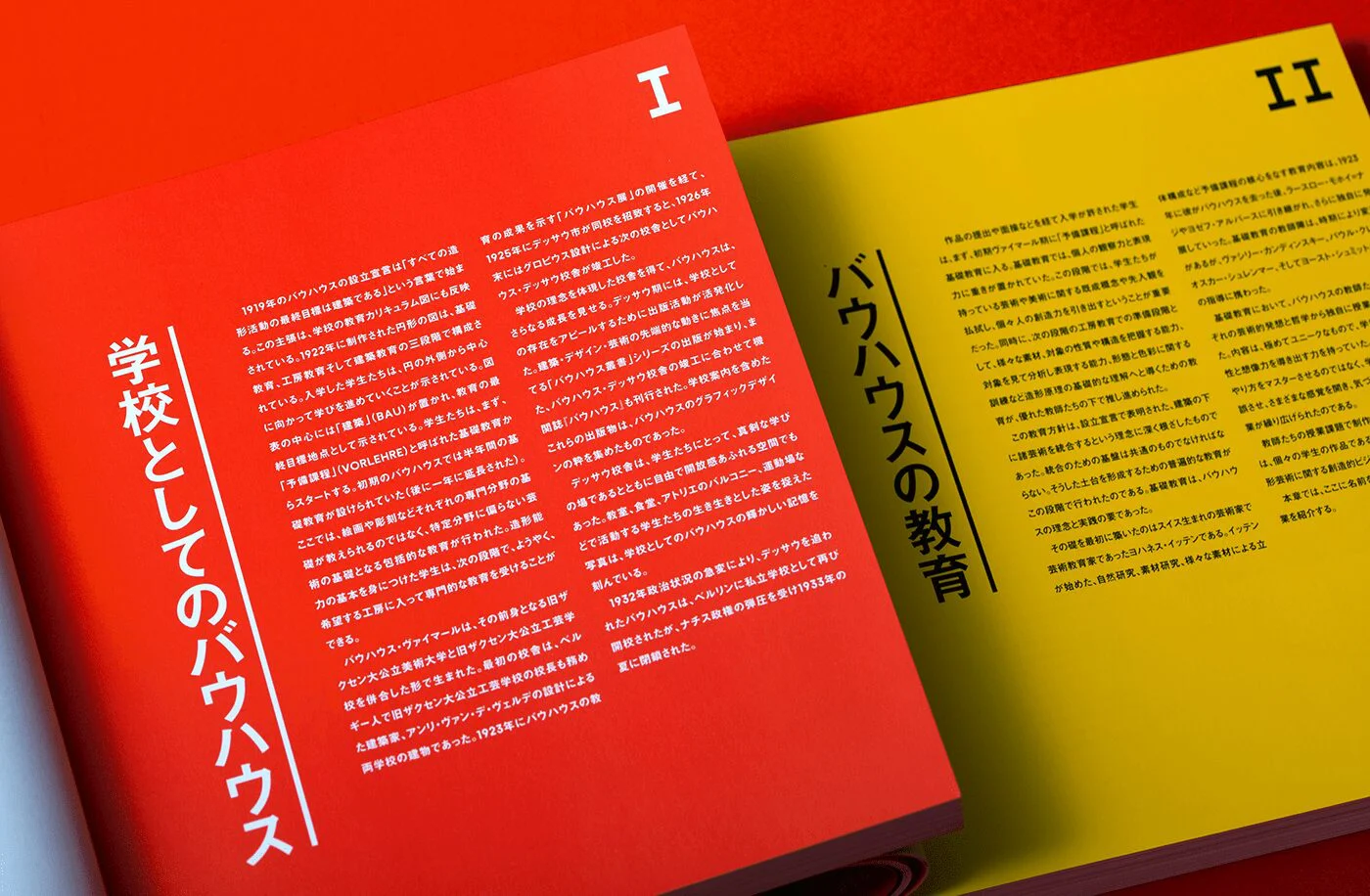
WILL
Creating modern creativity education
that goes beyond Bauhaus.
The “kommt ans bauhaus!” exhibit traveled to five art museums around Japan in 2019 and 2020, offering opportunities to communicate the significance of innovative plastic art education to a large number of people. Through our art direction of the project, we ourselves were able to learn more about Bauhaus.
While the modern design that Bauhaus led has contributed to a richer society, humankind has since pursued economic rationality too far, leading to depletion of resources, climate change, the widening of the gap between rich and poor, and other global-scale issues. Tackling such imbalances is the challenge facing modern design. Innovative creativity education of the past, like that of Bauhaus, is needed now more than ever.
Against this background, NOSIGNER’s Eisuke Tachikawa systematized “evolutionary thinking,” a method of thought that has uncovered mechanisms of innovation in the evolution of lifeforms. Our goal is a contemporary updating of creativity education based on “natural philosophy” that draws on the flow of early childhood education according to Bauhaus and Friedrich Fröbel, to realize a new creative education.
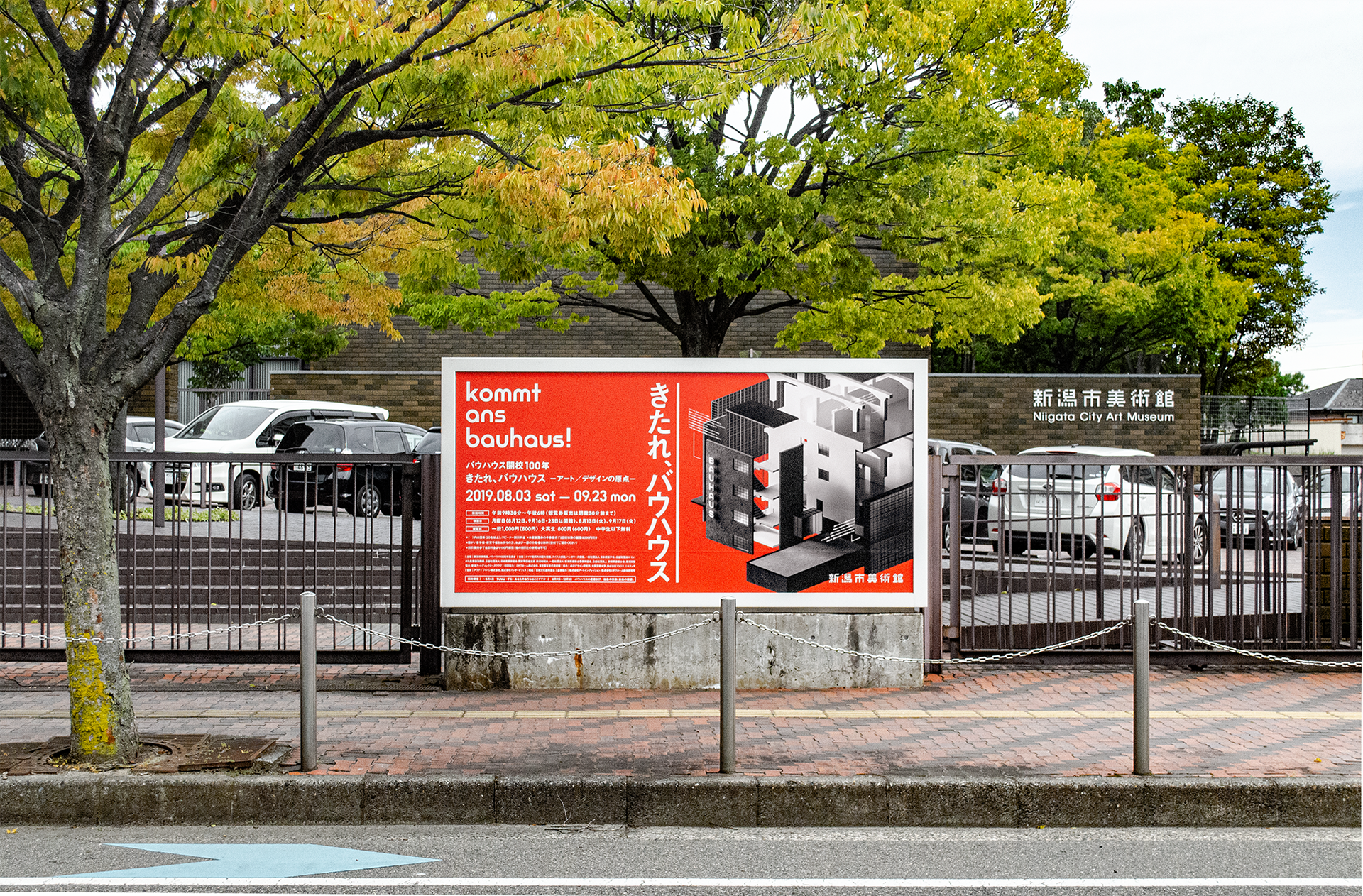
INFORMATION
- What
- kommt ans bauhaus!
- When
- 2017
- Where
- Japan
- Client
- Scope
- Logo / Motion logo / Promotional items / Infographics / Pamphlet / Photograph (社内リリース素材使用のみ) / Product / Book cover / Book cover and inner page design / Space / Exhibition / Poster / CG Modeling
CREDIT
- Art Direction
- NOSIGNER (Eisuke Tachikawa)
- Graphic Design
- NOSIGNER (Eisuke Tachikawa, Tomoro Hanzawa, Toshiyuki Nakaie, Yoshiki Odake)
- CG Modeling
- NOSIGNER (Shunsuke Furukawa, Ryusei Noguchi)
- Motion Design
- NOSIGNER (Tomoro Hanzawa)
- Illustration
- NOSIGNER (Tomoro Hanzawa)
- Photograph
- NOSIGNER (Tomoro Hanzawa), CCDN (Yuichi Hisatsugu)









